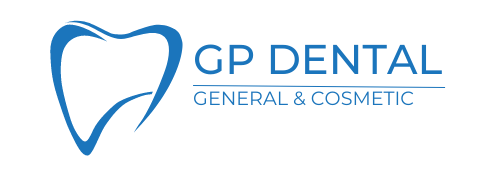If your own dental health is poor, your baby is more likely to have dental problems.
It’s a myth that calcium is lost from a mother’s teeth and “one tooth is lost with every pregnancy.” However, you may experience some changes in your oral health during pregnancy. The primary changes are due to a surge in hormones, particularly an increase in oestrogen and progesterone.
Visit your dentist at GP Dental either before or soon after you become pregnant so any problems can be treated immediately. Be sure to tell your dentist if you are pregnant.

Anual Dental Checkups
Routine x-rays, usually taken during annual exams, can usually be postponed until after the birth. X-rays are necessary to perform many dental procedures, especially emergencies.
The Royal Australian and New Zealand College of Radiologists report that no single diagnostic x-ray has a radiation dose significant enough to cause adverse effects in a developing embryo or fetus. Fetal organ development occurs during the first trimester; it is best to avoid all potential risks at this time if possible.
Oral Health & Pregnancy FAQ’s
Occasionally, some pregnant women will develop a localised swelling on the gum, known as a “pregnancy epulis” or “pregnancy granuloma”. Typically this will occur in the second or third trimester, sometimes even appearing for the first time in the final month of the pregnancy.
A pregnancy epulis will often bleed easily, and can appear red and inflamed, however they are generally not painful. A pregnancy epulis is a benign (harmless) tumour and does not have the potential to become cancerous. Some women may have the epulis removed during pregnancy for cosmetic reasons, or because the diagnosis is uncertain. However, if left alone, the epulis will usually become smaller or disappear after childbirth.
Pregnant women who experience morning sickness with vomiting and/or acid reflux are at high risk of tooth erosion. To reduce risk of tooth erosion and damage to your teeth after vomiting/reflux you can:
- Rinse your mouth immediately with water or a fluoridated mouth rinse.
- Chew sugar free gum to stimulate saliva to neutralise and wash away acid.
- Smear a little bit of toothpaste over your teeth with your finger.
- Wait at least 30 minutes before brushing to avoid damaging your softened teeth.
- Preventive dental work is essential to avoid oral infections such as gum disease, which has been linked to preterm birth.
- Dental work such as fillings that require removal of caries should be treated to reduce the chance of infection. If dental work is done during pregnancy, the second trimester is ideal.
- Once you reach the third trimester, it may be very difficult to lie on your back for an extended period of time. The safest course of action is to postpone all unnecessary dental work until after the birth. If treatment is required, your dentist will place a small pillow under your right hip (left lateral displacement) to relieve any pressure placed on your baby.
- The safest course of action is to postpone all unnecessary dental work until after the birth. However, sometimes emergency dental work such as a root canal or tooth extraction is necessary.
- Elective treatments, such as teeth whitening and other cosmetic procedures, should be postponed until after the birth.
- Lignocaine is the most commonly used drug for dental work. Lignocaine (Category B) does cross the placenta after administration. It is also the same anaesthetic agent used for an epidural. If dental work is needed, the amount of anesthesia administered should be as little as possible, but still enough to make you comfortable. If you are experiencing discomfort or pain, please request additional numbing. When you are comfortable, the amount of stress on you and the baby is reduced.
- Dental work often requires antibiotics to prevent or treat infections. Antibiotics such as penicillin, amoxicillin, and clindamycin, which are labeled category B for safety in pregnancy, may be prescribed after your procedure.
